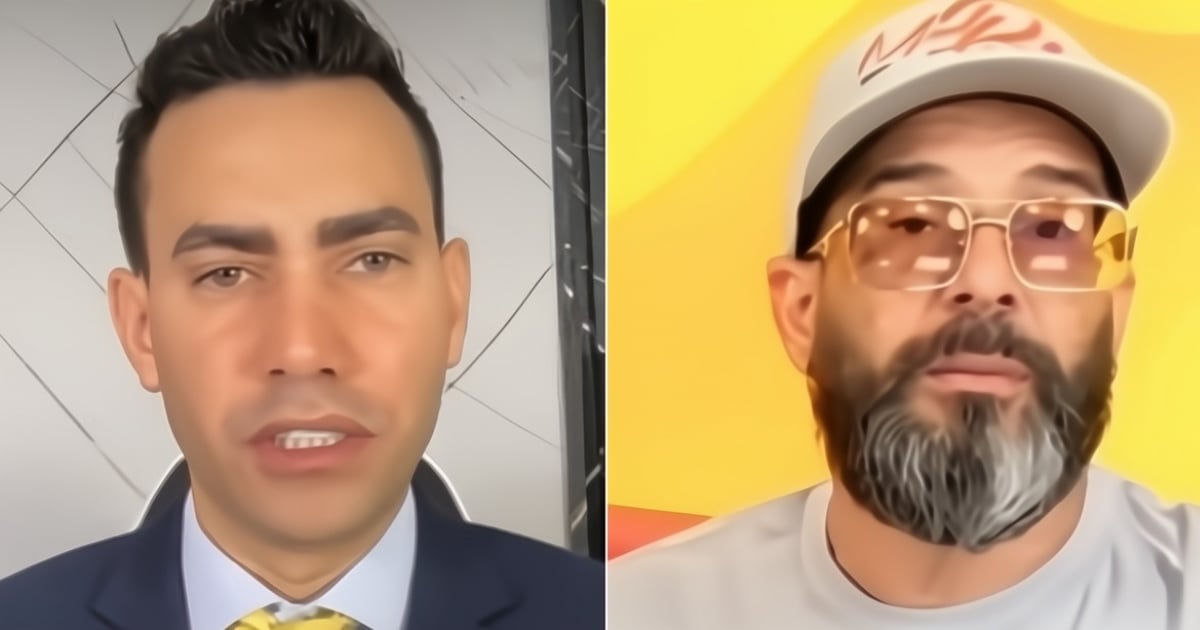
Related videos:
The Cuban journalist Mario J. Pentón responded to the influencer Alex Otaola after an intense debate about Donald Trump's policy towards Cuba and Venezuela.
While Otaola argued that the Republican president would implement a different strategy with each country, Pentón emphasized the inseparable connection between both regimes.
The exchange began when Otaola posted a message on a Pentón post on the social network X, where the journalist questioned whether the political stance towards Caracas would be similar to the one they would adopt towards Havana.
"Venezuelans did not grant Trump victory; they received support in the first term and did nothing. Cuba is a direct threat to the U.S. The approach will be different. Similarly, Mauricio Claver-Carone and Marco Rubio are there because change is the only thing coming for Cuba," said Otaola.
In response to these statements, Pentón said: "We will see. As you yourself stated in Washington: Facts, not words. Venezuela is immensely richer, has Russian, Chinese, and Iranian presence, and has already destabilized the entire region. This very administration has repeatedly linked Caracas and Havana. The evil is the same. They cannot be separated. Such a change in policy towards Caracas is surprising, to say the least."
Political debate and reactions on social media
Pentón recalled, in his post on X, the recent statements from Richard Grenell, Trump's special envoy to Caracas, who asserted that the president "does not want a regime change in Venezuela."
The journalist questioned the consistency of this stance with the Republican campaign rhetoric: "What happened to all those self-righteous claims against every measure by Joe Biden that eased sanctions on the Maduro regime or on Cuba?"
Grenell's visit and the debate on Trump's policy
Grenell visited Venezuela in January. The White House denied that this visit constituted an official recognition of the Chavista leader, but the details of the agreement reached were not revealed.
This change in the Republican policy towards Venezuela has sparked a wave of reactions among leaders of the Cuban and Venezuelan communities in exile. While Otaola insists on a differentiated strategy, Pentón emphasizes that treating both regimes separately would be a mistake.
Discussions continue, and the Cuban community in exile is closely watching the possible measures from the Trump administration regarding the government of Miguel Díaz-Canel. Amidst a deep economic and social crisis on the island, many hope that U.S. policy will maintain a tough stance against the Cuban regime.
The connection between Havana and Caracas, according to Pentón, is not only political but also economic and military, which makes it unfeasible to approach both countries as separate cases.
Frequently Asked Questions about Trump's Policies Toward Cuba and Venezuela
Why does Mario J. Pentón criticize Trump's stance on Venezuela?
Pentón criticizes the lack of coherence in Trump's policy towards Venezuela, arguing that the administration is not seeking a regime change despite the tough campaign rhetoric. He emphasizes that, although Biden's measures that ease sanctions on Maduro have been criticized, Trump does not seem interested in overthrowing the Venezuelan regime, raising questions about his true commitment to democracy in the region.
What political connection exists between Cuba and Venezuela according to Pentón?
Pentón asserts that Cuba and Venezuela are inextricably linked in political, economic, and military spheres. He notes that treating both regimes separately would be a mistake, as both countries share alliances with powers like Russia, China, and Iran, and have contributed to destabilizing the region, which necessitates a unified strategy in the foreign policy of the United States.
What is Alex Otaola's position on Trump's strategy towards Cuba?
Otaola defends that Trump will have a different strategy towards Cuba compared to Venezuela. He argues that the Cuban community in exile has been crucial for Trump's victory, which is why he expects the administration to adopt tougher measures against the Cuban regime, unlike the more flexible stance towards Venezuela. Otaola insists that Cuba is a direct threat to the United States and that change is imminent.
What has been the response of the Cuban community in exile to Trump's policies?
The Cuban community in exile has expressed concern regarding the contradictory signals from the Trump administration towards Cuba and Venezuela. Although a strict policy towards the Cuban regime was initially promised, Richard Grenell's statements about Venezuela have raised doubts about the consistency of the Republican foreign policy. Many in the exile community fear that the promises of decisive action against authoritarian regimes may not be fulfilled.
Filed under: